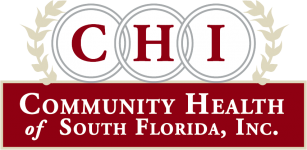BLACK HISTORY MONTH
Thomasina Simpson smiled as she looked at a photograph of her late mother, Doris Ison. The picture seemed to conjure up proud memories of the Florida City visionary and activist. Simpson is now 86 years old. Her recollection of her mother’s health care legacy comes and goes. But when it is there, Simpson comes alive, beaming with honor.
“She was never satisfied,” said Simpson about her mother.
That dissatisfaction was well warranted back in the 1960’s. Back then African-Americans living down South in Florida City and South Miami Dade did not have access to local health care facilities. James Archer Smith was the closest hospital in Homestead. But at the time, blacks were turned away. The journey to Jackson Memorial in Miami was sometimes fatal for those seeking medical help.
“It was a struggle,” said Carolyn Taylor-Pates, Ison’s niece and CHI board member. “Kids were dying on the way to Jackson Hospital.”
That struggle and the mounting death toll were the matches that ignited a flame That dissatisfaction was well warranted back in the 1960’s. Back then African-Americans living down South in Florida City and South Miami Dade did not have access to local health care facilities.
inside of Ison. Even though she only had a third grade education, Ison compelled doctors and legislators to create a health care center in South Miami Dade. In 1971, the Doris Ison Health Care Center was born as just two meager trailers and a few volunteer doctors that Ison had gathered from her church. It was a beacon of hope for a community that had suffered for too long without adequate health care.
That heroic act of activism snowballed into a top ranking non-profit health care company called Community Health of South Florida, Inc. that has grown year by year. In fact, Ison wanted to make sure that the migrant workers also received proper medical care.
“She was walking down the street one day and found a group of Mexicans in the field,” recalled Simpson. “One of the children had whooping cough and she wanted to know why they hadn’t seen a doctor.” She discovered migrants shared the same lack of access to health care that blacks were experiencing at the time. So she began to make sure that their needs were addressed as well.
“My grandmother was a champion for all people,” said Toni Rogers-Manning, Ison’s granddaughter. When Ison died in 1989 CHI had grown out of its trailers and was operating with four health care center buildings throughout South Miami Dade.
“I never envisioned it to be this big,” said Rogers-Manning. “So for me, I’m overwhelmed that my grandmother, her dream could be ongoing.”
Today Ison's legacy continues to grow. What was once the only place that blacks down South could go for health care is now an all inclusive health care center. People of all ethnicities and income levels go to CHI for a host of health care needs. Those that can't afford it are taken care of and others are given a sliding fee scale to work with in their budget. It's grown from a few volunteer doctors to a staff of more than 600 people with a wide variety of specialties: pediatrics, Ob-GYN, family medicine, radiology, mental health, dental and much more.
“I think that they did a great job,” said Simpson with a smile on her face. The now elderly daughter gleamed with hope for the future of her mother’s legacy, a legacy born out of such a meager beginning.





